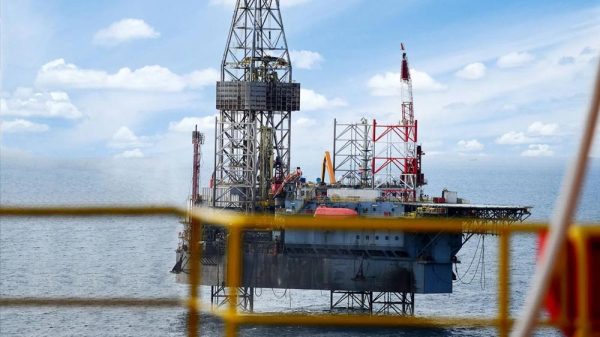Shipping giant Maersk has announced the suspension of its share buyback program due to the ongoing disruptions in the Red Sea. The company’s fourth-quarter earnings for 2023 fell below expectations, and it anticipates high uncertainty in its 2024 earnings outlook. The Red Sea disruptions, caused by attacks from Yemen’s Houthi rebels, have led to the diversion of shipping routes, resulting in increased costs and delivery times for global supply chains. Maersk’s decision to suspend share buybacks reflects the challenges faced by the shipping industry and the need to navigate the uncertain market conditions.
Red Sea Disruptions and Oversupply of Shipping Vessels
Maersk highlighted the significant impact of the Red Sea disruptions on its operations and expressed concerns about the uncertainty surrounding the situation. The company reported a drop in fourth-quarter profit, attributing it to the challenges posed by the attacks on commercial vessels by Yemen’s Houthi rebels. These diversions in shipping routes have not only increased costs and delivery times but have also raised concerns about inflation. The Organization for Economic Cooperation and Development (OECD) warned that persistent high freight rates could contribute to import price inflation across its member countries.
Uncertainty and Suspension of Share Buybacks
Maersk’s CEO, Vincent Clerc, acknowledged the limited visibility regarding the duration of the disruptions and their impact on earnings throughout the year. The company expects underlying EBITDA for 2024 to range between $1 billion and $6 billion, significantly lower than the $9.6 billion recorded in 2023. In response to the uncertain market conditions, Maersk’s board decided to suspend the share buyback program. The suspension will be reviewed once market conditions in the Ocean division, where the disruptions are occurring, have stabilized.
Challenges and Cost Considerations
While the diversions in shipping routes have led to increased freight rates for shipping companies, Maersk’s CEO expressed skepticism about significant profit generation from the situation. The company is currently absorbing costs to ensure the continuity of the global supply chain, but the full extent of these costs remains unknown. The oversupply of shipping vessels further complicates the situation, as it adds pressure to an already challenging market.
Outlook for 2024
Maersk’s 2024 earnings outlook is clouded by the ongoing disruptions and the uncertain resolution of the Red Sea situation. The company’s decision to suspend share buybacks reflects a cautious approach to navigate the challenges faced by the shipping industry. As the year progresses, Maersk will closely monitor market conditions and assess the feasibility of resuming the buyback program.











